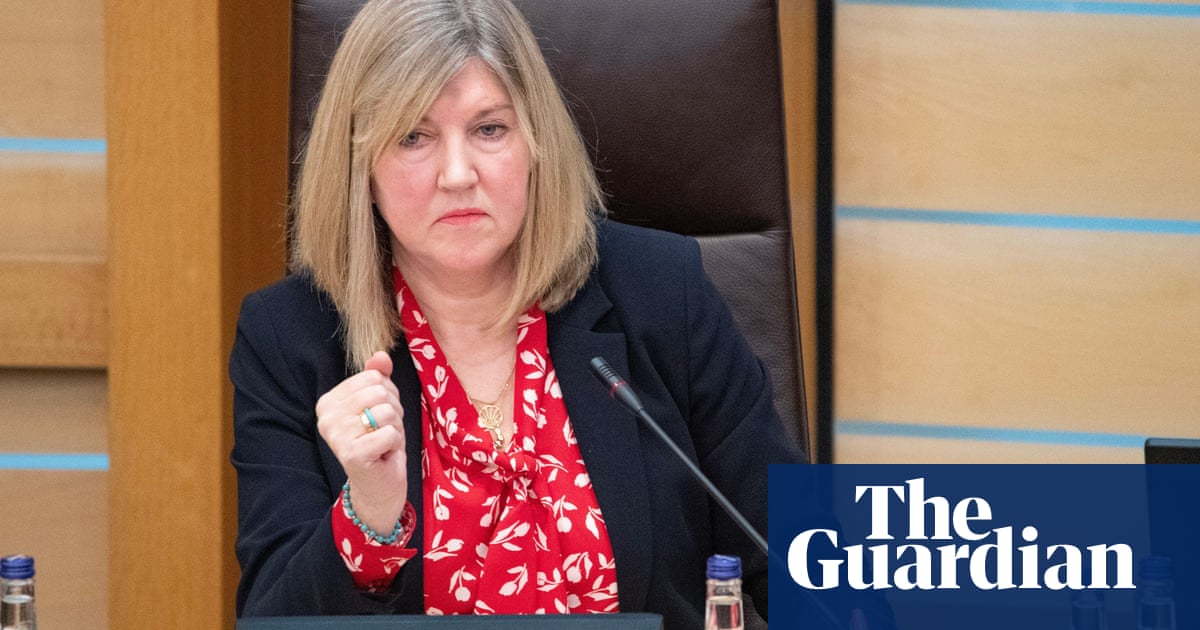
Holyrood’s presiding officer is calling for a ban on all-male committees, alongside quotas for key governing bodies and a new permanent proxy-voting scheme, in order to improve gender equality within the Scottish parliament.
Publishing the findings of the first gender-sensitive audit on Friday, Alison Johnstone – the Holyrood equivalent of the Commons speaker – warned “equal representation of women is not yet embedded within the parliament, nor is it guaranteed going forward”.
The recommendations developed by a cross-party board include setting up a women’s forum open to all MSPs to offer a formal support network, as well as pushing political parties to examine their candidate selection processes to improve diversity.
It also advocates for the permanent introduction of a pilot proxy voting scheme to support those taking leave for illness, caring or bereavement – as happened in the Commons in 2020.
The wide-ranging investigation of barriers to women’s representation and participation at Holyrood, launched by Johnstone in February 2021, also found women were less likely than men to participate at first minister’s questions, and men’s interventions were more likely to be taken in debates.
The report recommends more systematic data – gathering on women’s participation in the chamber and at committees, and a review of sitting times to discover what can be done to reduce the length of sessions and limit unpredictability. The final stage of the controversial gender recognition reform bill last December had some of the longest known sittings, with consideration of amendments lasting well past midnight.
Although the 2021 Holyrood elections returned the most diverse MSP group ever – 58 women, making up 45% of the parliament, including the first two minority ethnic women – three female MSPs stood down, citing the difficulties of managing family life and their role.
Johnstone said the report was “only the first step towards substantive reform”.
She added: “Having women in key roles and ensuring they are properly represented across the parliament helps bring different voices and perspectives to decisions.”
Adopting the recommendations in full, which must now be considered by Holyrood’s standards and procedures committee before being approved by parliament, would give the Scottish parliament an advantage over Westminster, an audit board member said.
Prof Sarah Childs, who also wrote the good parliament report in 2016 setting out diversity changes required at UK level, said by far the most important recommendation was setting up a cross-party advisory body to oversee effective delivery and “to avoid risk of recommendations getting left on the shelf”.
A similar group was set up in the Commons after the good parliament report but not reconstituted under a new speaker. “Without such an organisation reforms end up being much less systematic and coherent and there’s just less resourcing and political leadership,” she said.
Noting that the Commons recently had some all-male committees, Childs said Holyrood had “a very good track record” on representation.
“It started with higher percentages [of MSPs], but there have been some losses. That’s why some of the recommendations talk about rules that would enshrine best practice and protect from any future fallbacks, but also in other areas to really rule out behaviour that is difficult to defend,” she said.
“For any parliament to have committees that are composed of just men or women is hugely problematic in terms of representing interest and good decision making.”












